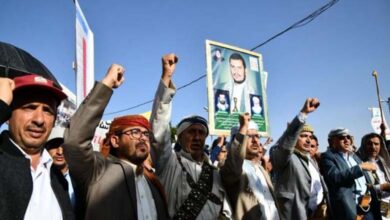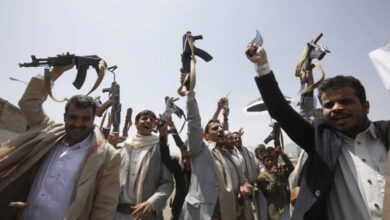Between Defense and Offense: The Transformation of Israel’s Security Doctrine After October 7

The October 7, 2023 attack was not just a military breach for Israel, but an existential shock that reshaped the concept of “border security.”
After decades of relying on deterrence and early warning systems, Israel is now adopting an unprecedented offensive strategy, blurring the lines between defense and offense, according to Foreign Policy.
-
From Beirut to Gaza… A New Mission for Israel’s 36th Division
-
Latest News from Gaza: Israel Expands Operations in the North Mass Exodus towards the South
The magazine states: “Israel has long considered prevention and protection as part of defending its borders. But for this Israeli government, the line between defense and offense has become more blurred than ever.”
The magazine adds: “Not only has the ceasefire between Israel and Hamas ended, but Israel ended it,” in a new approach reflecting Tel Aviv’s desire “to act unilaterally, avoiding any security arrangements that might hinder this right, and focusing on the importance of retaining buffer zones and strategic points in places like Gaza, Lebanon, and Syria, expecting the United States to enable – if not support – this new approach.”
-
Back to square one… Why did Israel resume its war on Gaza?
-
“For the ‘Resettlement’ of Gaza’s Population… Three African Destinations on the Radar of the US and Israel”
Foreign Policy highlights a clear paradox: “Over the past year and a half, Israel has managed to impose its escalating control over Hamas, Hezbollah, and even Iran, creating a situation where it can escalate in ways that are difficult for its adversaries to counter.”
However, despite this military dominance, transforming this superiority into stable political arrangements or peace agreements remains a major challenge.
The magazine points out that Tel Aviv could “benefit from bilateral or multilateral security arrangements rather than acting unilaterally, but a government led by a prime minister seeking to remain in power, with volatile Arab partners and rivals, and the heavy shadow of October 7, makes Israel a hesitant partner in any peace process.”
-
Washington Approves $3 Billion Arms Deal for Israel
-
From Gaza to the West Bank… Israel Draws Up “The Day after” Plans
Gaza Strip
The new Israeli approach is more clearly seen in the Gaza Strip. According to the magazine, Hamas’s attack was not just an intelligence and operational disaster, but it also questioned Israel’s core security concepts, including:
- Failure of deterrence.
- Collapse of early warning systems.
- Failure of ground defenses.
However, for Foreign Policy, the biggest failure was “the inability of military and intelligence leadership to imagine Hamas’s ability to carry out such a well-organized attack.”
-
First Tanks in the West Bank in Decades… Israel Evacuates 40,000 Palestinians ‘Without Return’
-
Israeli Soldier Sells Sensitive Information to Iran for $3,500
Although the ideal solution for Israel might be ending Hamas’s rule in Gaza and replacing it with a reliable Palestinian administration backed by Arab funding for reconstruction, the political reality, especially with Prime Minister Benjamin Netanyahu’s insistence on maintaining his alliance with hard-right partners, has made these plans mere unfeasible theories.
Instead, Israel is taking practical steps to expand buffer zones within the strip, deploy large ground forces, and conduct operations inside Gaza to prevent future attacks. Netanyahu has affirmed that Israeli forces will remain in Gaza even after the war ends.
-
The West Bank “chokes” due to Israeli checkpoints
-
“Death Trap” in Gaza: International Report Condemns Israel’s Actions
Lebanon
Israel’s new definition of border security is also evident in its approach to Lebanon. Its military campaign against Hezbollah has led to the depletion of the party’s members, resulting in thousands of casualties among its fighters, eliminating its top leadership, and destroying nearly 80% of its arsenal, according to Israeli military estimates.
But unlike Gaza, Foreign Policy notes that Israel has transformed its military dominance into political and security arrangements that hold real potential to improve security along its northern border.
After marginalizing Hezbollah, the Lebanese government formed a new cabinet and agreed to a multilateral ceasefire agreement with Israel, the United States, France, and the UN, aiming to push Hezbollah’s elements and weapons north of the Litani River.
-
Water Crisis in Gaza: Human Rights Watch Accuses Israel of Genocide
-
Details of the “Gaza Truce”: Disputes over “Prisoners” and Flexibility on the “Israeli Withdrawal”
Syria
Israel has also been intensifying its strikes on Iranian and Syrian military sites in Syria to cut off Iranian arms shipments to Hezbollah.
These strikes included ground and air operations targeting facilities suspected of producing precision-guided missiles. Foreign Policy mentions the possibility that Israel may seek to establish a large buffer zone south of Damascus, due to fears of Syria collapsing into rival factions, some of which might fall under the control of extremist groups.
-
International Report: Israel’s War in Gaza is the most “Deadly and Destructive” Ever
-
Amnesty Accuses Israel of Committing Genocide in Gaza
West Bank
In the West Bank, Israel has intensified its military operations in an unprecedented manner since the Second Intifada, aiming to thwart any potential attacks by Hamas.
It has conducted airstrikes targeting refugee camps and Palestinian cities, resulting in hundreds of deaths since October 7.
-
Hamas Counts Israeli Hostages in Preparation for a Possible Exchange
-
Gaza Deal: Details of a New Israeli Proposal for Hamas
What’s Next?
Like in Gaza, Lebanon, and Syria, Israel enjoys total freedom in its security and settlement policies. When asked by a U.S. State Department spokesperson whether the Trump administration was concerned about the escalating violence in the West Bank, the reply was that the U.S. “remains firmly by Israel’s side.”
However, Foreign Policy believes that Israel still needs to cooperate with its neighbors to ensure regional integration and achieve long-term stability. But in the context of a right-wing government and the Palestinian divide between Hamas and Fatah, the chances of bilateral and multilateral solutions seem slim.
-
Permanent Occupation of the Sector, Alteration of Its Map, and Construction of Military Bases: Israel’s Secret Plans for Gaza
-
Israel Threatens Hezbollah Leaders: Defeating the Party with the Weapon of “Chaos”
-
Israel plans to expand its ground operations in southern Lebanon












